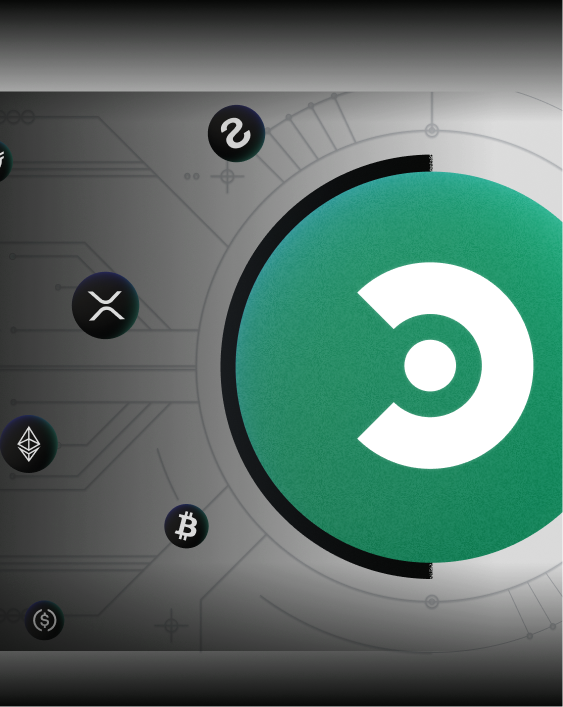GET INVOLVED


Developers Hub
Access resources, bounty programs, and additional tooling.
Exchange Integration
Guidelines for integrating Coreum onto any exchange.
Workshops
Learn directly from seasoned engineers with bi-weekly live sessions.
Validators
Participate in the consensus, increase network security, and earn rewards.
Grants
Apply for funding to build dApps or integrate to the Coreum network.
Developer Playground
Developer Docs
Join The Team
Roadmap
Follow the current progress and future initiatives of Coreum.
Ecosystem
Explore the applications built on the Coreum blockchain.
Smart Tokens
Programmable tokens engineered for automatic business logic execution and advanced DeFi experiences.
Wallets
Manage all our your favorite Coreum assets with the verified ecosystem wallets.
Architecture
Dive into the architecture of the blockchain and modules available.
Cross-Chain Routing
Interoperability on Coreum. IBC Channels, XRPL Bridge, and more.
Enterprise
Learn about Coreum’s features tailored for institutional blockchain adoption.
ISO 20022
Financial messaging for modern institutions on a simulator terminal.
CORE Team
Meet the team of innovators behind the project.
Whitepaper
Community
Join the Coreum Community, discover local events, and access initiatives.
Accelerator Program
Funding and business advancement for startups in the blockchain space.
University Programs
Learn about Coreum’s initiatives with leading institutions in the education field.
Press & Media
Stay up to date with the latest Coreum news, insightful articles, and official press releases.
Contact
Get in touch with the right team through Coreum’s contact channels.
Blog
Developers
Developers Hub
Access resources, bounty programs, and additional tooling.
Exchange Integration
Guidelines for integrating Coreum onto any exchange.
Workshops
Learn directly from seasoned engineers with bi-weekly live sessions.
Validators
Participate in the consensus, increase network security, and earn rewards.
Grants
Apply for funding to build dApps or integrate to the Coreum network.
Developer Playground
Developer Docs
Join The Team
Ecosystem
Roadmap
Follow the current progress and future initiatives of Coreum.
Ecosystem
Explore the applications built on the Coreum blockchain.
Smart Tokens
Programmable tokens engineered for automatic business logic execution and advanced DeFi experiences.
Wallets
Manage all our your favorite Coreum assets with the verified ecosystem wallets.
Architecture
Dive into the architecture of the blockchain and modules available.
Cross-Chain Routing
Interoperability on Coreum. IBC Channels, XRPL Bridge, and more.
Enterprise
Learn about Coreum’s features tailored for institutional blockchain adoption.
ISO 20022
Financial messaging for modern institutions on a simulator terminal.
CORE Team
Meet the team of innovators behind the project.
Whitepaper
Community
Community
Join the Coreum Community, discover local events, and access initiatives.
Accelerator Program
Funding and business advancement for startups in the blockchain space.
University Programs
Learn about Coreum’s initiatives with leading institutions in the education field.
Press & Media
Stay up to date with the latest Coreum news, insightful articles, and official press releases.
Contact
Get in touch with the right team through Coreum’s contact channels.
Blog
Explorer



Coreum Use Cases







Built to Scale
Coreum is an enterprise-grade blockchain designed to meet the critical scalability, security, and interoperability needs of large enterprises. Featuring intelligent Smart Tokens with built-in business logic, its robust capabilities make it suitable for ventures of any size.

Introducing Smart Tokens
Redefine what's possible with programmable assets infused with WASM-based smart contracts.
Assign unique properties and functionalities to native tokens right from their inception. Manage ownership, access, and minting in a completely customizable and reliable manner.
learn More


Cross-Chain Transactions with Global Standards
Move smart assets swiftly across multiple chains using the IBC Protocol and Coreum’s native bridge to the XRP Ledger.
Explore Routes


Instant Finality
Using a Bonded Proof of Stake (BPoS) Consensus Algorithm, Coreum can process up to 7,000 TPS while remaining decentralized through a growing network of validators since Mainnet launch in March 2023.
